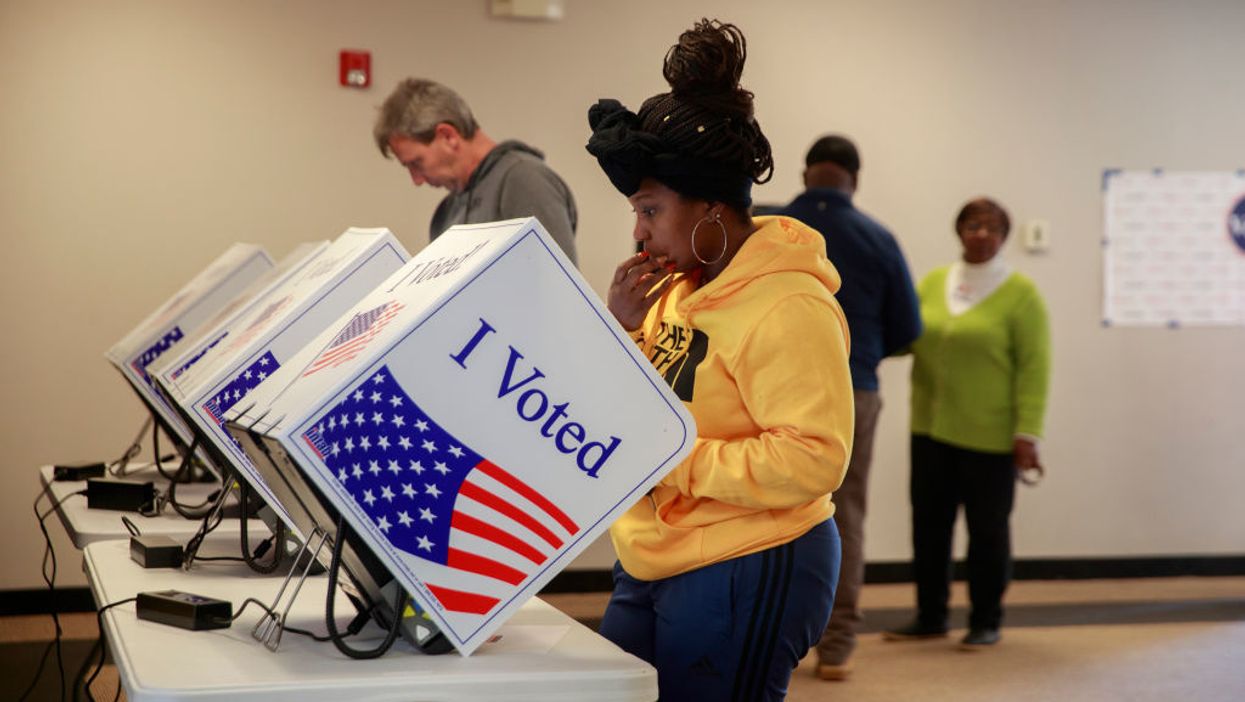Advocates for easing restrictions on absentee voting during the coronavirus pandemic have won a split decision in federal court in South Carolina.
A judge on Monday barred the state from requiring a witness signature on mail-in ballots for the congressional and legislative primaries in two weeks, but she said the state could require those ballots to arrive by the time the polls close.
The ruling was the most important news over the holiday weekend for the cause of easier voting this year, which also brought fresh lawsuits challenging a diverse set of rules in North Carolina, Michigan and New York. These are the latest developments:
South Carolina
Judge J. Michelle Childs ruled that getting close enough to another person to obtain a countersignature on an absentee ballot would subject voters — especially those living alone — to an improper risk of Covid-19 infection in the runup to the June 9 primaries and subsequent runoffs. But she declined to strike down the witness requirement as unconstitutional.
The state Election Commission said the witness rule was a proper guard against fraud, even after the panel's executive director conceded in a letter to GOP Gov. Henry McMaster this spring the rule "offers no benefit to election officials as they have no ability to verify the witness signature."
The plaintiffs, including the NAACP Legal Defense Fund, sued to allow absentee votes to be counted so long as they are postmarked by Election Day, arguing that first-time mail voters were especially likely to wait until the last minute. The state said waiting for the Postal Service would make it impossible to certify results and get ready for the runoffs. And Childs ruled the poll-closing deadline "is nondiscriminatory."
North Carolina
A group of voters supported by Democratic campaign committees filed a lawsuit in federal court on Monday seeking several changes to make it easier to vote by mail in one of the most politically competitive states in the Deep South.
The suit's bill of particulars is similar to several others the Democrats have brought. It asks a judge to make the state pay the postage on returning absentee ballots; drop the requirement that two witnesses sign the ballot in order for it to be counted; extend the deadline for absentee ballots to arrive at election offices to nine days after Election Day, and give voters a chance to correct signature discrepancies with their ballots. Election officials compare the signature on the absentee ballot with a signature on file.
Michigan
The laws of the state are similar to those in the Carolinas when it comes to returning an absentee ballot: The paper will only get tabulated if it's returned to the proper place before the polls close on election night.
The League of Women Voters, represented by the American Civil Liberties Union, filed a suit asking a state appeals court to make Democratic Secretary of State Jocelyn Benson extend the deadline. It argues that the law, on the books for eight decades, abridges the "unqualified, unconditional state constitutional right for registered voters to vote in all elections by absentee ballot."
The suit quotes Benson's office as saying 1.75 percent of absentee ballots were rejected this month because they arrived after 8 p.m. on primary day. If all 7.7 million people in the state vote in November — only a theoretical possibility, to be sure — that would mean 134,000 disallowed ballots.
New York
A coalition of disability rights groups sued the Board of Elections in federal court Friday, alleging discrimination against voters who are blind or otherwise physically unable to mark a paper ballot.
The suit says that while marking a paper ballot may be impossible for disabled people, they can easily mark and send an online ballot. Still, election security officials nationwide have warned that any voting system that connects to the internet is vulnerable to being hacked.
The groups are hoping for changes ahead of the state's presidential, congressional, legislative and local primarise in just four weeks, in which voting-by-mail is being made widely available to all voters for the first time because of the pandemic. The suit was filed a month after disability rights groups pressed the Justice Department to insist on more secure remote voting options for those who can't reliably use paper.




















Trump & Hegseth gave Mark Kelly a huge 2028 gift